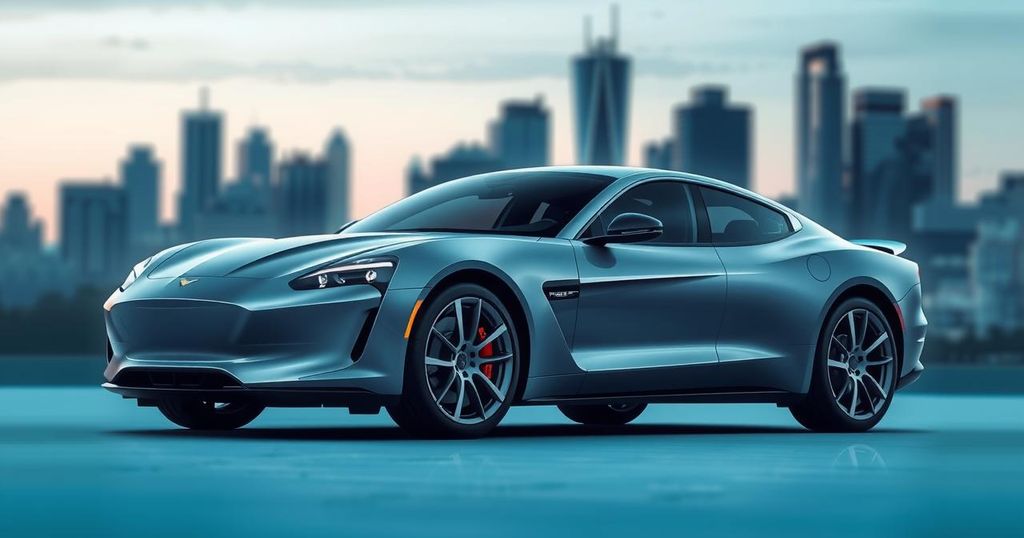BMW Faces Profit Challenges Amid Tariffs and Declining China Sales
BMW AG forecasts lower carmaking profits due to trade tensions and declining sales in China, with expected margins of 5%-7%. The company plans to introduce new electric vehicles and increase North American manufacturing to offset challenges, though it faces skepticism regarding growth assumptions. Overall net profit has dropped by 37% amid recalls and ongoing market pressures.
BMW AG anticipates that its carmaking profits will fall short of long-term targets this year, primarily due to increasing trade tensions and stagnant sales in China. The company predicts an automaking margin between 5% and 7% for the year, down from 6.3% in 2024, which is the lowest in four years, contrasting with its goal of maintaining margins above 8%. Consequently, shares of BMW have experienced a drop of up to 4.5% recently and more than 20% over the past year.
As the competitive landscape in China intensifies, the company faces challenges from local electric-vehicle manufacturers, particularly BYD Co. Additionally, tariffs imposed in the US and Europe are expected to result in approximately €1 billion in costs for BMW in 2024, as indicated by Chief Executive Officer Oliver Zipse during a Bloomberg Television interview.
In response to declining market share, BMW is preparing to launch its Neue Klasse line of electric vehicles later this year and plans to introduce 40 new and updated vehicles across all drivetrain types by 2027. “We have growth ambitions because we have strong products,” Zipse stated, expressing optimism for 2025 despite existing challenges.
The impact of US tariffs is already felt by BMW’s operations in San Luis Potosi, Mexico, as the company struggles to meet local content requirements under the USMCA trade deal. To mitigate these issues, plans to increase manufacturing in North America are being considered along with existing investments in the US and Mexico. However, the risk may escalate if President Trump enforces additional tariffs on European imports, which include some of BMW’s key sedan models.
Despite the current climate, Zipse conveyed that the company remains resilient: “We don’t think that all these tariffs will last very long, though some of them might last longer.” BMW’s overall net profit has declined approximately 37% to €7.68 billion ($8.3 billion) due to a recall linked to braking systems from Continental AG.
Last year, BMW’s global car sales decreased by 4%, with a significant drop of 13.4% in China alone, as the company contended with lower car prices and rising manufacturing costs. In contrast, competitor Mercedes-Benz experienced a 7% decline in China, while Porsche saw a 28% slump. Looking ahead, BMW anticipates a slight recovery in car sales this year as inflation stabilizes and interest rates moderate. However, concerns arise regarding maintaining growth in Europe and the US in light of ongoing challenges in China.
In summary, BMW AG is facing significant challenges that will impact its carmaking profits, with expected margins lower than their long-term targets. Tariffs and competition in China are weighing heavily on the company, leading to a notable decline in profitability and sales. Despite these hurdles, BMW aims to launch innovative electric vehicles and capture market share, indicating cautious optimism for the future.
Original Source: www.business-standard.com




Post Comment